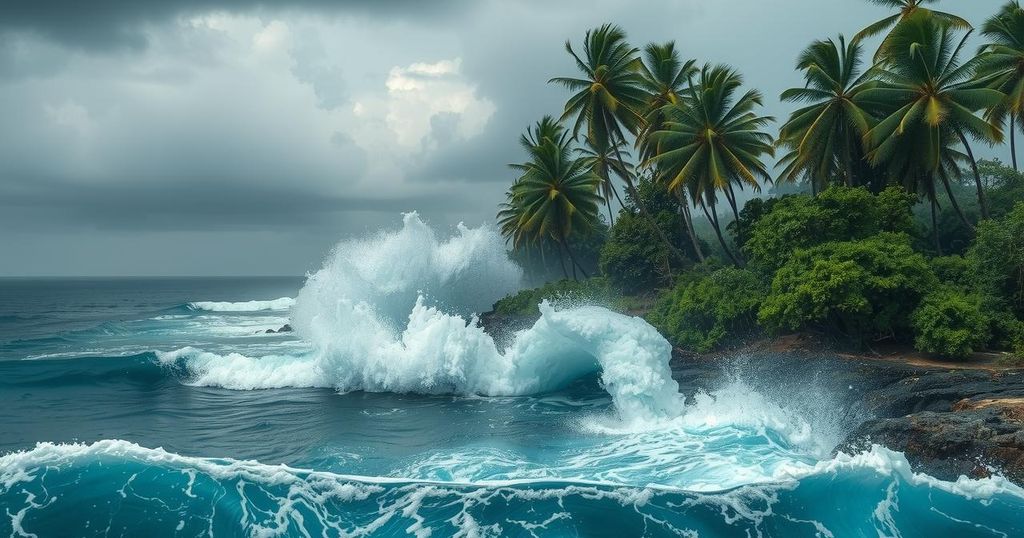Tropical Storm Dikeledi Strikes Northern Mozambique, Prompting Safety Measures

Tropical Storm Dikeledi has impacted northern Mozambique after causing fatalities in Madagascar. The official warnings indicate severe flooding risks and high winds. President Nyusi has advised safety measures while the ongoing threat reflects broader, climate-linked storm intensities in the Indian Ocean region.
Tropical Storm Dikeledi made landfall in northern Mozambique on Monday, following its destructive impact on Madagascar where it claimed the lives of at least three individuals and caused severe flooding in Mayotte. Upon reaching Mozambique’s Nampula region, the storm intensified, bringing harmful winds and significant rainfall, according to Meteo-France, the French weather agency.
In December, Cyclone Chido had already inflicted tragedy in the same area of Mozambique, resulting in over 120 fatalities. Furthermore, Dikeledi has exacerbated conditions in Madagascar, where it wreaked havoc by producing strong winds and heavy rain, particularly affecting the northern tip of the island nation. As a preventive measure, the National Institute of Meteorology in Mozambique has issued flood warnings, anticipating rainfall accumulation of up to 200 millimeters (approximately eight inches) in a 24-hour period, coupled with wind gusts that may reach 180 kilometers (110 miles) per hour.
President Filipe Nyusi has urged those in the storm’s projected path to exercise caution by seeking shelter and preparing adequate food and water supplies. His message emphasized, “Go immediately to a safe shelter and stay there until the authorities give you further instructions,” made during the opening session of parliament in Maputo, the capital city.
The cyclone phenomenon frequently occurs in the Indian Ocean from November to March, with current surface water temperatures nearing 30 degrees Celsius (86 degrees Fahrenheit) heightening storm intensity. This increase in severity aligns with patterns linked to global warming noted in other regions such as the North Atlantic and the Pacific, signaling potential for more intense meteorological events in the future.
The Indian Ocean region faces a seasonal trend of cyclone developments between November and March every year. Tropical Storm Dikeledi has emerged as a significant weather event this season, reflecting the growing intensity of storms due to elevated sea surface temperatures. Recent historical contexts highlight the vulnerability of northern Mozambique when impacted by cyclones, signifying the need for stringent preparedness and disaster management protocols. Past cyclones have led to substantial loss of life and property, emphasizing the continuing threats exacerbated by climate change, which fuels the intensity of such storms.
In summary, Tropical Storm Dikeledi represents a critical natural disaster affecting Mozambique and neighboring regions. It has already resulted in fatalities and damage in Madagascar, highlighting the perilous nature of cyclones in the Indian Ocean. The response initiatives led by President Filipe Nyusi and weather agencies are crucial in mitigating further risks and protecting vulnerable populations. With climate change potentially increasing storm intensity, authorities are urged to remain vigilant in their preparedness and response strategies.
Original Source: www.barrons.com







